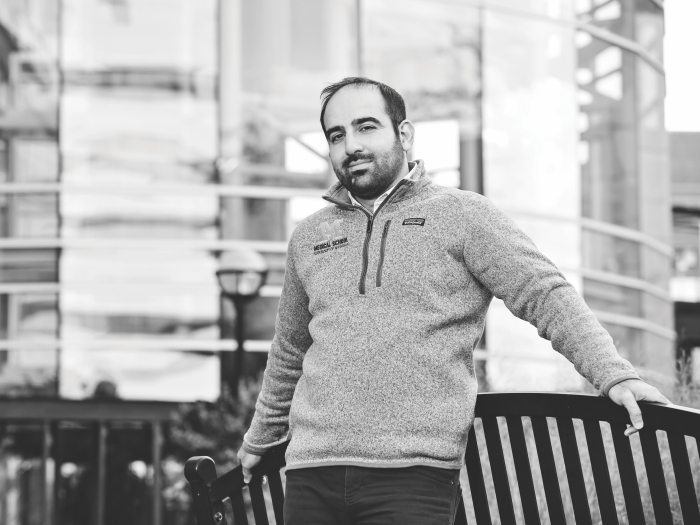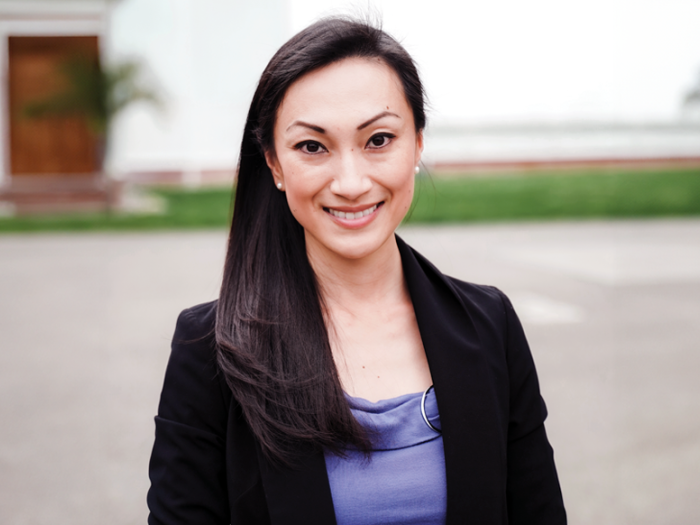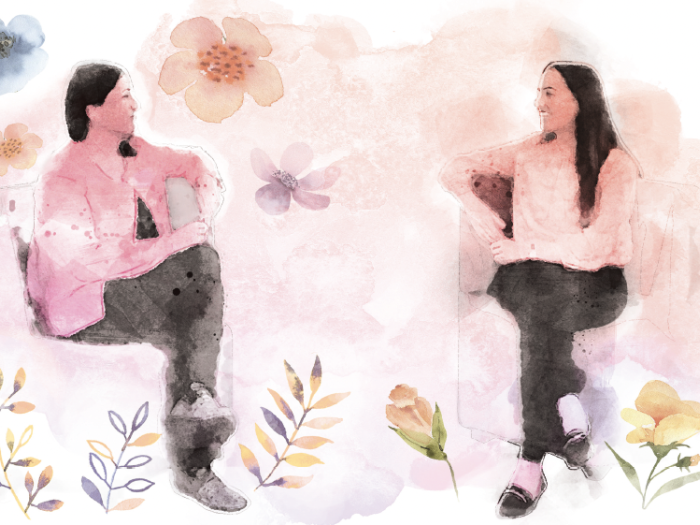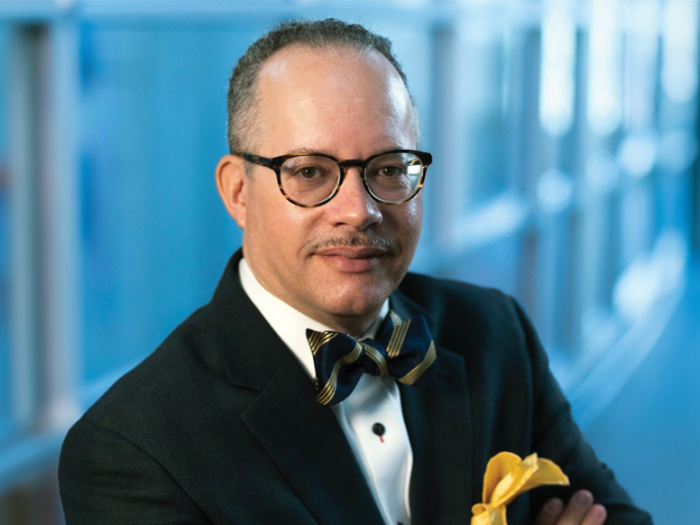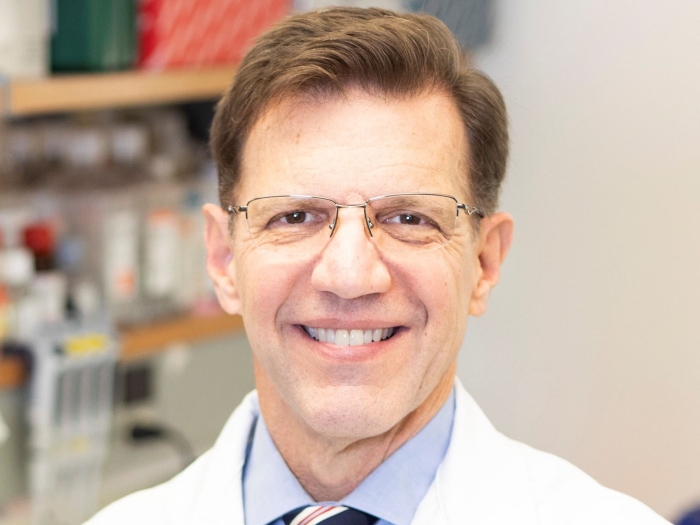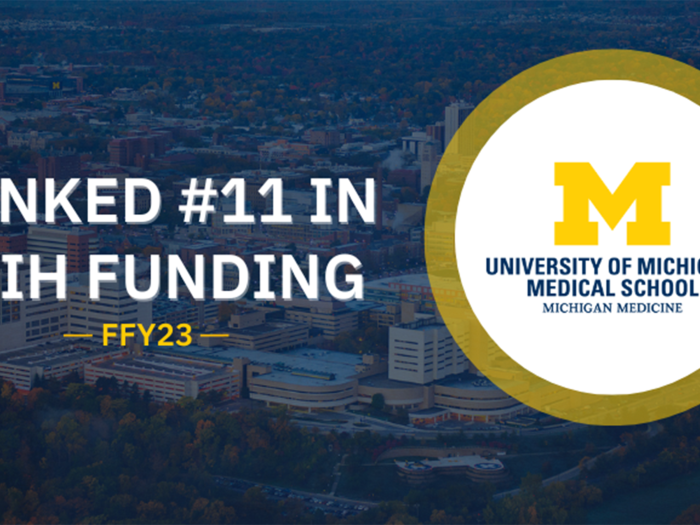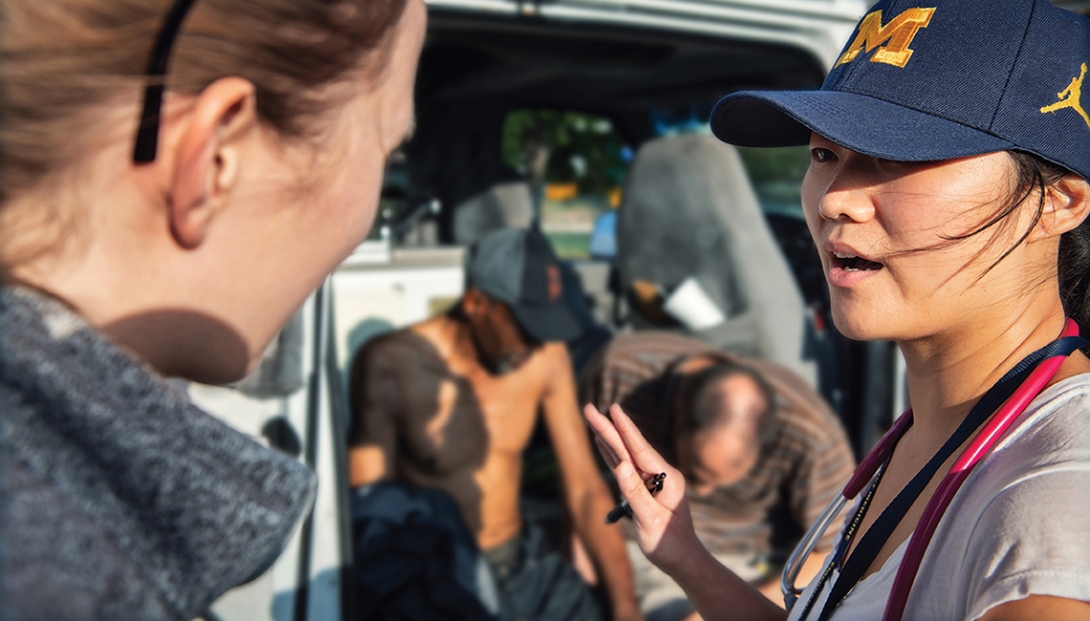
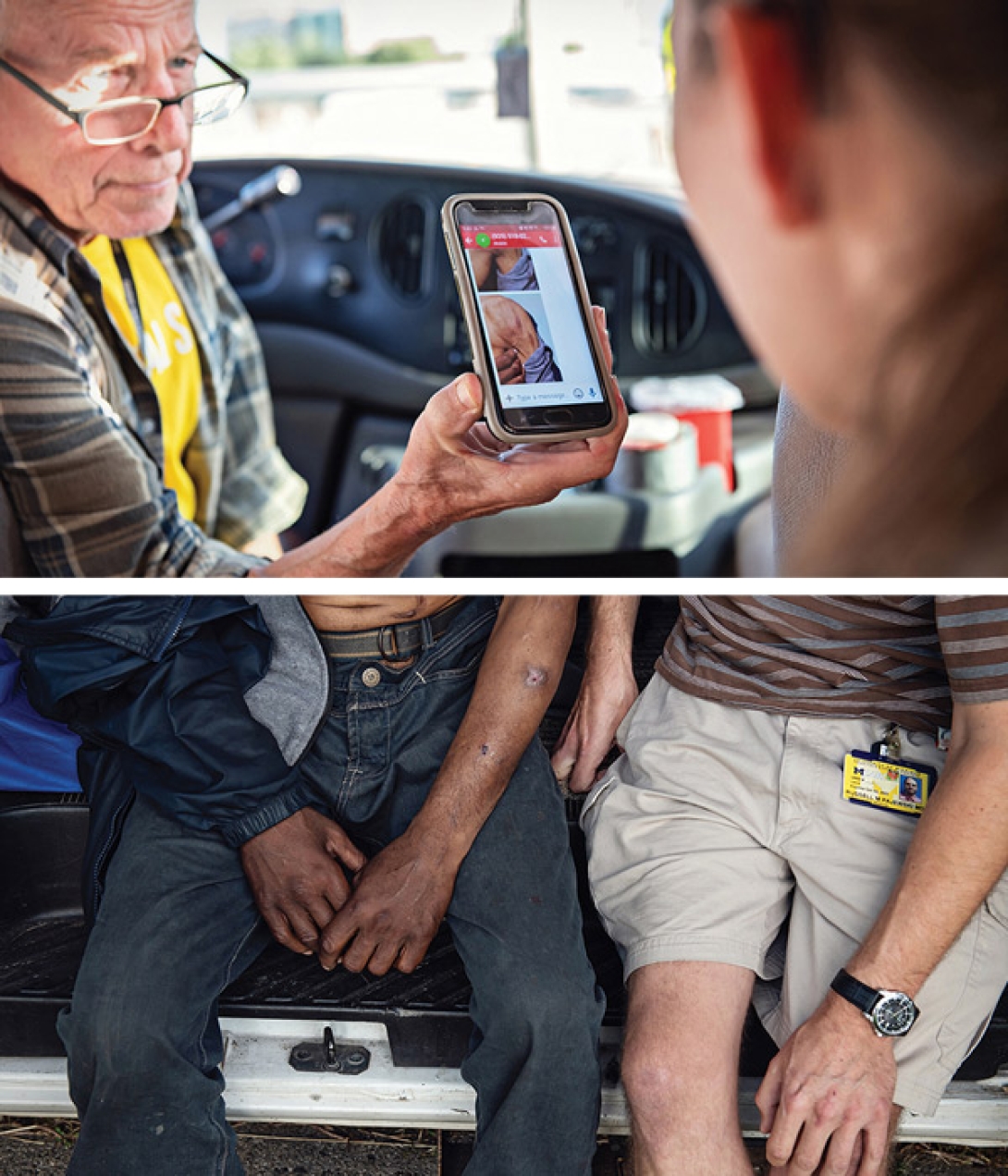
During one stop on a recent day, a man named Art pulls a card out of his red windbreaker and smiles as he shows it to Jim Bastian, an outreach nurse and preceptor for the Wolverine Street Medicine program. The card is from a local clinic, with appointment details for Art's next checkup. "That's a big win to get him paying attention to his health a little bit more," says Bastian (pictured here). Art is currently homeless, one of nearly 2,000 people estimated to be living on the streets or in shelters in Detroit.
To bring compassionate medical care to homeless people, U-M Medical School students founded the Wolverine Street Medicine program in 2017. A couple of days each week, medical students — under the supervision of registered physicians or nurse practitioners — head to Detroit to provide care for those in vulnerable situations.
Medical students Jessica Winkels and Emily Zhao consult as Russell Pajewski, M.D. (Residency 2016), instructor in internal medicine, examines a patient. Wolverine Street Medicine members try to follow up with patients regularly. "A lot of the people we see will get treated at a hospital or clinic and never go back; that's why it's important for us to show a continuous presence," Bastian says.

Food and care packages provide patients with necessities like granola bars, fruit, bottles of water, socks, hand warmers, and toothpaste. Based on the relationships the team builds with patients, they know who typically needs certain supplies, and who has to comply with dietary restrictions.
The team takes a personalized approach to ensure that patients have access to attentive medical care, and that they are more knowledgeable and proactive about maintaining their health.
The team maintains a list of the patients they serve and documents each interaction and the types of care provided. They share the information with partner organizations from Michigan State University, Wayne State University, and local community groups. This allows patients to receive consistent care as they are treated by different volunteers, and also shows each group which patients need to be checked on.
"They show more concern than when you go in a typical clinic. They're out here trying to help and don't do this for money," says Loy, a Wolverine Street Medicine patient. "They get me my insulin, and that's a big help." The program is also able to provide antibiotics, asthma and allergy medicines, ibuprofen, opioid blockers, and other medications.
"This program is really about personal contact and relationships," says Zhao (above). "We're going into someone's trusted space and trying to understand what they're going through."
Bastian and Winkels (below) take stock of the team's supplies in the specially equipped conversion van they use to get around and treat patients. Some of the conditions they treat most frequently include diabetes, heart disease, mental illness, and drug and alcohol addiction. They have also seen patients with gunshot and stab wounds.
"Down south, they call it 'moseying,'" Bastian says. "We stick around, we talk to people, we get to know them, and we learn how we can meet their needs.
